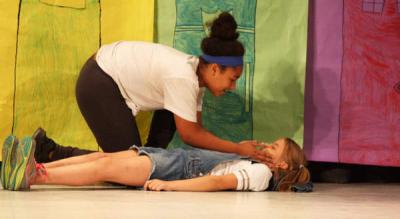CARE program substance abuse lessons have far-reaching impact
The Office of Beyond School Time kept kids busy this summer, with 275 enrolled in the summer programs this year, but the group with particularly powerful results was a group of 13 students in the CARE program.
The summer club, CARE program and SAIL program for high schoolers were all well-attended. The summer club’s theme was HATS: Honor Achieved Through Service. For a group of students in the CARE program, the acronym meant something else: Healthy Alternatives to Substance Abuse.
The 13 students in this section of the summer CARE program partnered with the Brent Hastings Foundation and learned about proper use of medications, said Office of Beyond School Time Director Jane Fondulis at Wednesday’s Wareham School Committee meeting.
Students worked with local substance abuse experts, heard from guest speakers, made pamphlets with their findings and fundraised for the Brent Hastings Foundation. At the end of the summer, these CARE students put on a skit for the rest of the students.
Since the program ended, organizers have evaluated its impact on the community. They found people engaged with the information on social media, the students worked with community groups and raised funds and “became powerful advocates,” Paling said.
School Committee Chair Judy Caporiccio asked whether the sensitive topic raised issues for some students.
The students did have the opportunity to discuss their personal experiences, Paling said, but it was healthy for them to have a safe space to talk about it. The adults were sure to steer the conversation in a positive direction.
School Committee Vice-Chair Geoffrey Swett suggested following the 13 students around to see if it has an impact on their choices in the future.
“Imagine how you would feel if you could track these kids,” Swett said. He proposed taking a random urine sample from the students in the coming years, with their parents’ permission, to see if the program could reduce the likelihood of young people experimenting with drugs.
The students passed out over 200 pamphlets at the CARE Fair to parents and students, educating the community about substance abuse. They raised $230 in their fundraiser selling slime and fidget spinners.
The implications for teaching and learning include facts and terminology being learned, students conducting investigations and solving problems, students discussing open-ended questions and developing summaries of their information, then writing reports and designing posters and media presentations.
“They were amazing,” Paling said. “We learned as much as they did along the way.”













